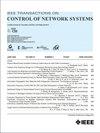统一机会约束和鲁棒性最优电力流,实现弹性网络运营
IF 4
3区 计算机科学
Q2 AUTOMATION & CONTROL SYSTEMS
引用次数: 0
摘要
可再生能源发电的不确定性有可能对电网的运行产生不利影响。已经提出了许多方法来管理这种影响,从随机和机会约束规划到鲁棒优化。然而,这些方法要么倾向于保守,要么使系统容易受到低概率、高影响的不确定性实现的影响。为了解决这个问题,我们提出了一个随机最优潮流的新公式,明确区分“正常运行”和“不利运行”,在正常运行中,自动发电控制(AGC)足以保证系统安全,而在“不利运行”中,系统操作员需要采取额外的行动,例如手动备用部署。以IEEE-118和IEEE-300总线系统为例,将新公式与经典公式进行了比较。我们观察到,我们对极端情况的考虑使解决方案比典型的机会约束公式更安全,但比仅使用AGC保证鲁棒可行性的解决方案成本更低。本文章由计算机程序翻译,如有差异,请以英文原文为准。
Unifying Chance-Constrained and Robust Optimal Power Flow for Resilient Network Operations
Uncertainty in renewable energy generation has the potential to adversely impact the operation of electric networks. Numerous approaches to manage this impact have been proposed, ranging from stochastic and chance-constrained programming to robust optimization. However, these approaches either tend to be conservative or leave the system vulnerable to low-probability, high-impact uncertainty realizations. To address this issue, we propose a new formulation for stochastic optimal power flow that explicitly distinguishes between “normal operation,” in which automatic generation control (AGC) is sufficient to guarantee system security, and “adverse operation,” in which the system operator is required to take additional actions, e.g., manual reserve deployment. The new formulation has been compared with the classical ones in a case study on the IEEE-118 and IEEE-300 bus systems. We observe that our consideration of extreme scenarios enables solutions that are more secure than typical chance-constrained formulations, yet less costly than solutions that guarantee robust feasibility with only AGC.
求助全文
通过发布文献求助,成功后即可免费获取论文全文。
去求助
来源期刊

IEEE Transactions on Control of Network Systems
Mathematics-Control and Optimization
CiteScore
7.80
自引率
7.10%
发文量
169
期刊介绍:
The IEEE Transactions on Control of Network Systems is committed to the timely publication of high-impact papers at the intersection of control systems and network science. In particular, the journal addresses research on the analysis, design and implementation of networked control systems, as well as control over networks. Relevant work includes the full spectrum from basic research on control systems to the design of engineering solutions for automatic control of, and over, networks. The topics covered by this journal include: Coordinated control and estimation over networks, Control and computation over sensor networks, Control under communication constraints, Control and performance analysis issues that arise in the dynamics of networks used in application areas such as communications, computers, transportation, manufacturing, Web ranking and aggregation, social networks, biology, power systems, economics, Synchronization of activities across a controlled network, Stability analysis of controlled networks, Analysis of networks as hybrid dynamical systems.
 求助内容:
求助内容: 应助结果提醒方式:
应助结果提醒方式:


